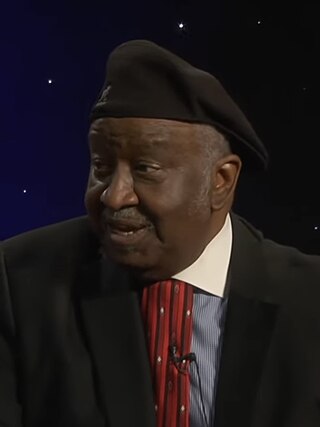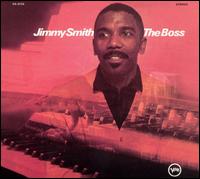
Aretha Louise Franklin was an American singer, songwriter and pianist. Referred to as the "Queen of Soul", Rolling Stone twice named her as the greatest singer of all time. With global sales of over 75 million records, Franklin is one of the world's best-selling music artists.

Luther Ronzoni Vandross Jr. was an American soul and R&B singer, songwriter, and record producer. Throughout his career, he achieved eleven consecutive RIAA-certified platinum albums and sold over 40 million records worldwide. Known as the "Velvet Voice", Vandross has been recognized as one of the 200 greatest singers of all time (2023) by Rolling Stone, as well as one of the greatest R&B artists by Billboard. In addition, NPR named him one of the 50 Great Voices. He was the recipient of eight Grammy Awards, including Song of the Year in 2004 for a track recorded not long before his death, "Dance with My Father". In 2021, he was posthumously inducted into the National Rhythm & Blues Hall of Fame.

Morehouse College is a private historically Black men's liberal arts college in Atlanta, Georgia. Anchored by its main campus of 61 acres (25 ha) near Downtown Atlanta, the college has a variety of residential dorms and academic buildings east of Ashview Heights. Along with Spelman College, Clark Atlanta University, and the Morehouse School of Medicine, the college is a member of the Atlanta University Center consortium. Founded by William Jefferson White in 1867 in response to the liberation of enslaved African-Americans following the American Civil War, Morehouse adopted a seminary university model and stressed religious instruction in the Baptist tradition. Throughout the late 1800s and early 1900s, the college experienced rapid, albeit financially unstable, institutional growth by establishing a liberal arts curriculum. The three-decade tenure of Benjamin Mays during the mid-20th century led to strengthened finances, an enrollment boom, and increased academic competitiveness. The college has played a key role in the development of the civil rights movement and racial equality in the United States.

The National Civil Rights Museum is a complex of museums and historic buildings in Memphis, Tennessee; its exhibits trace the history of the civil rights movement in the United States from the 17th century to the present. The museum is built around the former Lorraine Motel, which was the site of the 1968 assassination of Martin Luther King Jr. Two other buildings and their adjacent property, also connected with the King assassination, have been acquired as part of the museum complex.

Martin Luther King Sr. was an African-American Baptist pastor, missionary, and an early figure in the Civil Rights Movement. He was the father and namesake of the civil rights leader Martin Luther King Jr. He was the senior pastor of Atlanta's Ebenezer Baptist Church from 1931 to 1975.
Arthur George Gaston was an American entrepreneur who established businesses in Birmingham, Alabama. He had a significant role in the movement to remove legal barriers to integration in Birmingham in 1963. In his lifetime, Gaston's companies were some of the most prominent African-American businesses in the American South.

Alberta Christine Williams King was an American civil rights organizer best known as the mother of Martin Luther King Jr., and as the wife of Martin Luther King Sr. She was the choir director of the Ebenezer Baptist Church. She was shot and killed in the church by 23-year-old Marcus Wayne Chenault six years after the assassination of her eldest son Martin Luther King Jr.

Bernard Lee "Pretty" Purdie is an American drummer, and an influential R&B, soul and funk musician. He is known for his precise musical time-keeping and his signature use of triplets against a half-time backbeat: the "Purdie Shuffle." He was inducted into the Modern Drummer Hall of Fame in 2013.

Yoshi's is a nightclub located in Jack London Square in Oakland, California, United States. The venue originally opened in 1972 as a restaurant in Berkeley, later moving to Claremont Avenue in Oakland. In 1979, the restaurant expanded into a lounge/nightclub hosting local and national jazz musicians.

The Bohemian Caverns, founded in 1926, was a restaurant and jazz nightclub located on the NE Corner of the intersection of 11th Street and U Street NW in Washington, D.C.

Paschal's is an American foodservice company based in Atlanta, Georgia, specializing in Southern cuisine. It was founded as a small sandwich shop in 1947 by brothers Robert and James Paschal, who worked together on their foodservice ventures for over 50 years until Robert's death in 1997. James Paschal continued to preside over the company until his death in 2008. Today Paschal's operates a restaurant in the Castleberry Hill section of Atlanta, a foodservice outlet at Hartsfield–Jackson Atlanta International Airport, and is a food vendor for other US airports and grocery stores.
The Atlanta Student Movement was formed in February 1960 in Atlanta by students of the campuses Atlanta University Center (AUC). It was led by the Committee on the Appeal for Human Rights (COAHR) and was part of the Civil Rights Movement.

The Boss is a 1968 live album by American jazz organist Jimmy Smith.
The state of Georgia mostly improved in its treatment of lesbian, gay, bisexual and transgender residents in the years after 1970, when LGBT residents began to openly establish events, organizations and outlets for fellow LGBT residents and increase in political empowerment.

The cuisine of Atlanta reflects both Southern and much broader influences. The city is home to a mix of high-end chef-driven restaurants receiving praise at the national level, an ethnic restaurant scene along Buford Highway, and traditional Southern eateries.
The Atlanta Cabana Motel was a 200-room motor hotel located at the southwest corner of Peachtree Street and 7th Street in Midtown Atlanta. It opened in 1958 and was razed in 2002; the site is now occupied by the 28-floor Spire residential tower. The Cabana was Atlanta's first major new hotel in 30 years as well as a pioneer in the concept of motor hotels, that is, motel-like facilities in cities, as opposed to alongside highways between cities. It was recognized as a prime example of modern motor hotel architecture.
The Parliament House Motor Inn chain was started by Kansas City, Missouri investors Ned Eddy and his sons Ned, Jr. and James. They started in the food and beverages business running the successful Eddy’s Restaurant in Kansas City, Missouri. They gave the Parliament House properties an English royalty theme with the slogan, "Built for the House of Lords... priced for the House of Commons." Their goal was a nine city chain by 1964. They never made their goal and filed for bankruptcy on June 8, 1965 when they claimed to operate 8 properties. They listed liabilities of $5 million in the court filings.

The Dew Drop Inn, at 2836 LaSalle Street, in the Faubourg Delassize section of Central City neighborhood of New Orleans, Louisiana, is a former hotel and nightclub that operated between 1939 and 1970, and is noted as "the most important and influential club" in the development of rhythm and blues music in the city in the post-war period. The venue primarily served the African-American population in the then heavily segregated Southern United States.

The 1964 Monson Motor Lodge protest was part of a series of events during the civil rights movement in the United States which occurred on June 18, 1964, at the Monson Motor Lodge in St. Augustine, Florida. The campaign between June and July 1964 was led by Robert Hayling, Martin Luther King Jr., Ralph Abernathy, Andrew Young, Hosea Williams, C. T. Vivian and Fred Shuttlesworth, among others. St. Augustine was chosen to be the next battleground against racial segregation on account of it being both highly racist yet also relying heavily on the northern tourism dollar. Furthermore, the city was due to celebrate its 400th anniversary the following year, which would heighten the campaign's profile even more. Nightly marches to the slave market were organized, which were regularly attacked and saw the marchers beaten.














